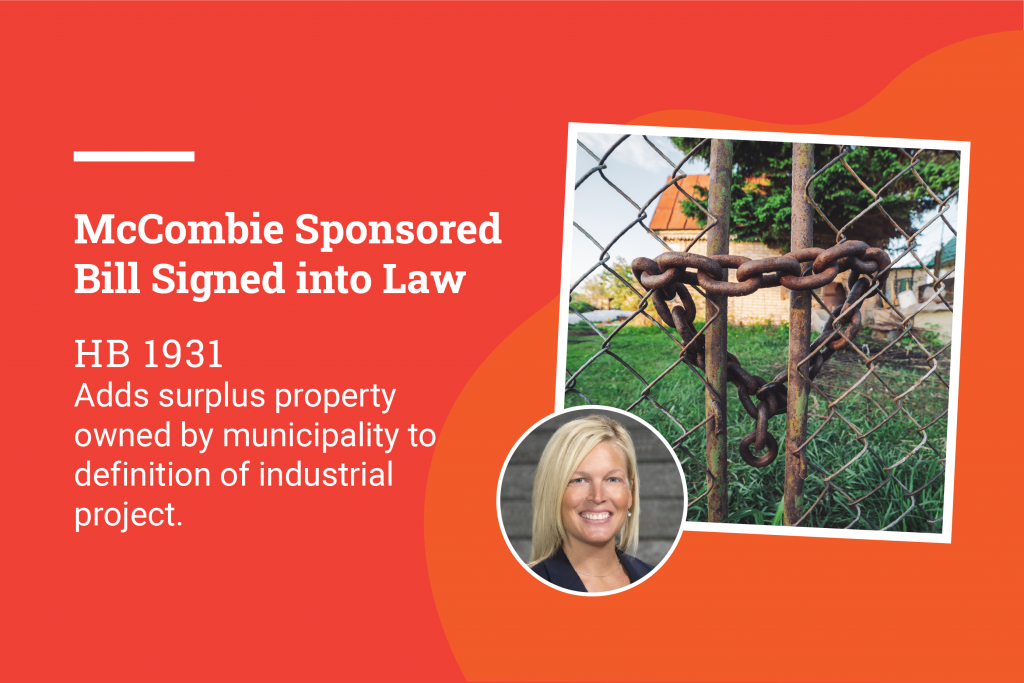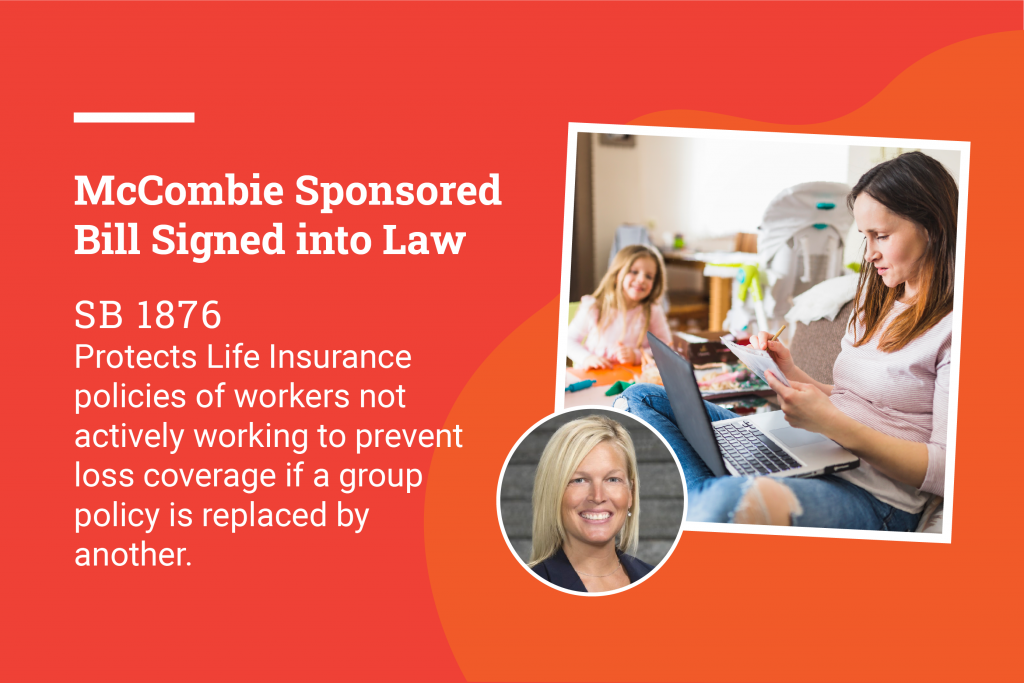As bill-signing season yields a harvest of new legislation, below are some McCombie sponsored and co-sponsored bills on topics ranging from initiatives of the City of Rock Falls for community development to extending no-contact orders to electronic communications.
Learn about these new laws co-sponsored and sponsored by Rep. McCombie below:
- House Bill 1779– signed into law as Public Act 102-0203- Requires individual and group health plans to cover bio-marker testing. Effective January 1, 2022.
- House Bill 1785– signed into law as Public Act 102-0204- Requires a school board to hold at least three public hearings prior to closing a school building unless the building has been deemed unsafe by a licensed entity. Effective immediately.
- House Bill 1931– Chief Sponsor: McCombie– signed into law as Public Act 102-0239- Initiative of the City of Rock Falls to permit municipalities to more efficiently manage surplus property to promote growth. Effective immediately.
- Senate Bill 1611– signed into law as Public Act 102-0213- Allows the Secretary of State to accept electronic signatures for documents. Effective January 1, 2022.
- Senate Bill 1677– signed into law as Public Act 102-0220- Allow no-contact orders to also prohibit contact through electronic communication. Effective January 1, 2022.
- Senate Bill 1681– signed into laws as Public Act 102-0221- Includes probation officers as law enforcement officers for line of duty compensation. Effective January 1, 2022.
- Senate Bill 1723– signed into law as Public Act 102-0222- Amends the Illinois Public Accounting Act to improve the exam process. Effective January 1, 2022.
- Senate Bill 1876– Chief Sponsor: McCombie– signed into law as Public Act 102-0367- Prevents a lapse in coverage if a group life insurance policy were to be replaced by another carrier. Effective January 1, 2022.
Additional bills sponsored and co-sponsored by Rep. Tony McCombie are still pending executive action by the Governor.
The Governor has 60 days to consider every bill passed from the time the bill is sent to them. If they want the bill to become a law, the Governor then signs it or vetoes it. If the Governor does nothing with the bill, it automatically becomes law after 60 days. A vetoed bill is returned to the chamber of the legislature where it originated — it has 15 days to be passed with the veto overridden and it must do so by 3/5ths margin (71 House; 36 Senate) to still become law over the Governor’s veto.
More on this and other legislative issues can be found at Rep. McCombie’s legislative website at repmccombie.com.


